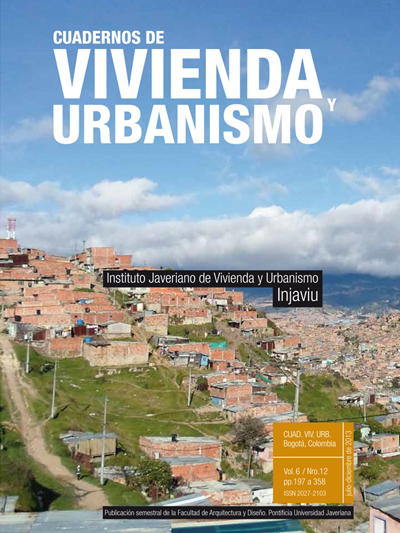Resumen
El objetivo del trabajo fue explorar las percepciones de la población en torno a las disparidades tanto en salud como en habitabilidad, a partir de las diferencias establecidas por las condiciones socioeconómicas que refuerzan las distancias sociales, en las cuales se reconoce el papel que desempeña el Estado colombiano frente a las injusticias sociales y el rol de la cultura ciudadana, dentro del marco de deberes y derechos humanos. El proceso investigativo se realizó desde el Sondeo Participativo, utilizando técnicas de investigación cualitativa en Ciencias Sociales. Se desarrolló en la localidad de Suba (Bogotá), barrios Casablanca, Lisboa, Cañiza 3, Villa Cindy, Tibabuyes Universal y La Gaitana, reconocidos como pertenecientes al estrato socioeconómico 2. A partir de lo encontrado en entrevistas a mujeres cabeza de hogar, diversas observaciones y consultas a líderes y expertos, se constató que la percepción de disparidad en habitabilidad y en salud se relaciona con las condiciones socioeconómicas, la injusticia social, las decisiones estatales, la ilegalidad por parte de los habitantes y el desconocimiento de los derechos ciudadanos.
Esta revista científica se encuentra registrada bajo la licencia Creative Commons Reconocimiento 4.0 Internacional. Por lo tanto, esta obra se puede reproducir, distribuir y comunicar públicamente en formato digital, siempre que se reconozca el nombre de los autores y a la Pontificia Universidad Javeriana. Se permite citar, adaptar, transformar, autoarchivar, republicar y crear a partir del material, para cualquier finalidad (incluso comercial), siempre que se reconozca adecuadamente la autoría, se proporcione un enlace a la obra original y se indique si se han realizado cambios. La Pontificia Universidad Javeriana no retiene los derechos sobre las obras publicadas y los contenidos son responsabilidad exclusiva de los autores, quienes conservan sus derechos morales, intelectuales, de privacidad y publicidad.
El aval sobre la intervención de la obra (revisión, corrección de estilo, traducción, diagramación) y su posterior divulgación se otorga mediante una licencia de uso y no a través de una cesión de derechos, lo que representa que la revista y la Pontificia Universidad Javeriana se eximen de cualquier responsabilidad que se pueda derivar de una mala práctica ética por parte de los autores. En consecuencia de la protección brindada por la licencia de uso, la revista no se encuentra en la obligación de publicar retractaciones o modificar la información ya publicada, a no ser que la errata surja del proceso de gestión editorial. La publicación de contenidos en esta revista no representa regalías para los contribuyentes.


